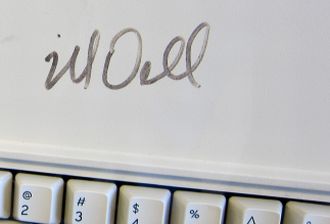 Dell is reporting that it managed to grow in its networking and servers space but suffered a bad case of headwinds in its PC market and saw revenues on that side of its business decline by 23 per cent to $13.4 billion.
Dell is reporting that it managed to grow in its networking and servers space but suffered a bad case of headwinds in its PC market and saw revenues on that side of its business decline by 23 per cent to $13.4 billion.
Dell co-CEO Chuck Whitten said trading conditions had worsened in the second half of the past fiscal year and that demand had weakened in the fourth quarter.
“Commercial revenue fared better than Consumer, down 17 per cent as customers delayed PC purchases in the face of macroeconomic and hiring uncertainty – it was down 40 per cent,” he said.
“We are seeing an increase in competitive pressure and elevated industry channel inventories, but we continue to maintain pricing discipline, execute our direct attach motion and focus on our relative performance in the most profitable segments of the PC market,” added Whitten.
Dell was weathering the storm and focusing on doing what it could to get through the current trading conditions.
“In this challenged and uncertain environment, we’ve stuck to a playbook that has served us well across multiple cycles, staying customer-focused, driving differentiated relative performance, delivering against our innovation agenda, managing our cost position, maintaining pricing discipline, and sustaining our unique and winning culture. In short, we have focused on what we can control,” said Whitten.
Whitten believed that in the mid-term things would improve because the market remained fundamentally sound.
“Underlying demand in PCs and servers remains weak, and we are seeing signs of changing customer behaviour and storage,” he said.
“However, the fourth quarter was a very good storage demand quarter. We saw lengthening sales cycles and more cautious storage spending with strength in very large customers, offset by declines in medium and small business. Given that backdrop, we expect at least the early part of FY 2024 to remain challenging. That said, our fundamental belief in both the long-term health of our markets and the advantage of our business model haven’t changed.”





